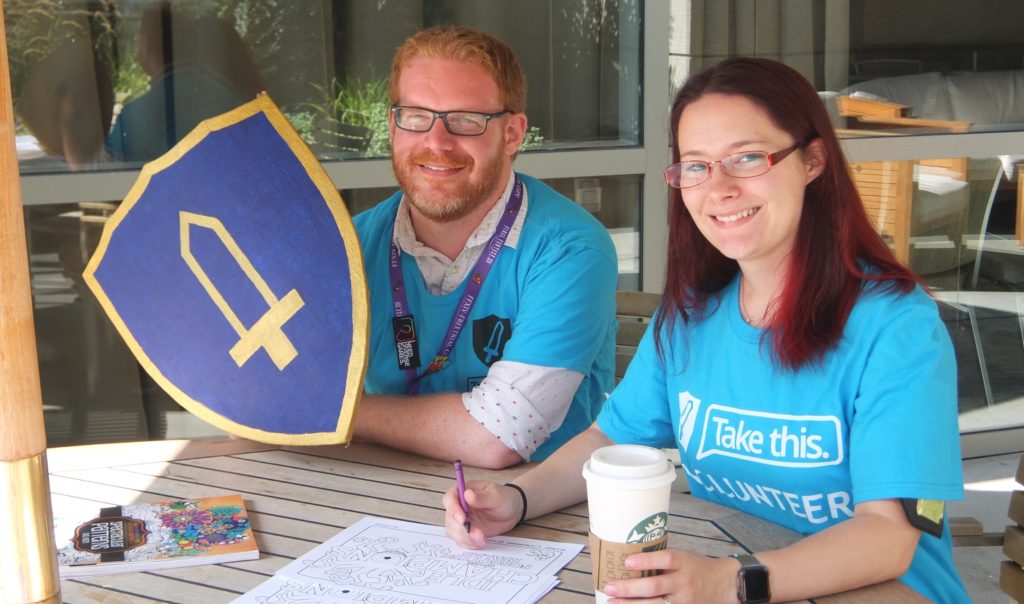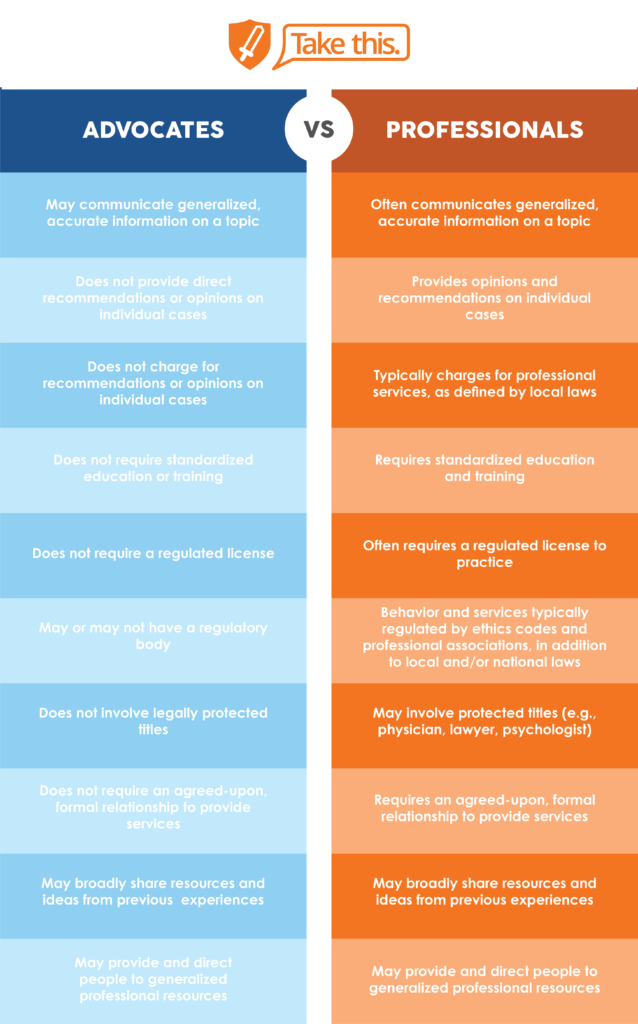
How do content creators address mental health online? Thankfully, this is a question a growing number of content creators ask with increasing regularity. It shows remarkable concern and compassion for their communities. Still, it can be a fraught question. As their careers grow, so can the frequency with which they encounter the needs of their viewers. It can be intimidating to know what to do or how to respond to those needs, especially for folks who aren’t formally trained. Having some understanding of what you can and can’t do helps.
Defining “Help”
Most people want to help others. That’s great! It’s also vague. Help can mean a lot of different things. Does it mean providing a welcoming community? Providing education to them on an important topic? What about providing direct service and giving advice to them? Does it mean having a list of resources you can provide for specific situations? All of these are a form of help, and it’s up to each content creator (and the rules of their platforms) as to what help means. Knowing what you cando also lets you know what you can’t do, especially when someone might need the help of a professional.
Being a Professional vs. Being an Advocate
Two common forms of helping others are being a professional and being an advocate. What’s the difference? Generally, being a mental health professional means a person offers expert opinions and treatment options (often in exchange for a fee) to clients, based on clients’ individualized needs. Professionals can answer questions about how people can improve their lives, and they work with people to help them do exactly that. Most treatment-providing professionals require a license to practice, the license is limited to specified localities, and their behavior is regulated by local law as well as ethical codes from local and national associations. If a professional doesn’t follow ethical and legal rules, they can lose their license. It’s usually illegal to perform those services without a license. It’s often illegal to even call yourself certain things without a license (such as psychologist, therapist, psychiatrist, physician, or sometimes even life coach). Licensed treatment providers completed a standardized, accredited training program on their specialty before earning a license to provide those services. They also usually have hundreds, if not thousands, of hours in supervised training. In short, becoming a licensed, treatment-providing professional isn’t easy, and it’s highly regulated both in person and online (for example, you generally need to be licensed wherever the person you’re serving is currently located!).
On the other hand, anyone can be a mental health advocate. While professionals offer direct, regulated, expert opinions and services, advocates support or promote an idea they care about. They might additionally offer general information on a topic they are knowledgeable about or have experienced. For example, Take This Streaming Ambassadors advocate accepting those with mental health challenges, and they work to promote accepting streaming communities. They might offer general resources and information on mental health issues. They might listen to people and self-disclose their own lived experiences. They might encourage people to seek out mental health professionals if they have an individual need. What they don’t do is offer individualized advice or recommendations to individuals on mental health topics.
So You’re Not a Professional… and That’s Not a Bad Thing
At first glance, it might seem that being advocate isn’t as valuable as being a professional. There are certainly those who would say so, but that’s like saying a hammer is more valuable than a drill. Advocates and professionals fulfill different roles, and both can be amazingly valuable. Professionals reach individuals and help them in the kind of depth advocates can’t, but they usually don’t have reach.
Advocates, especially successful ones, are able to educate and influence large groups, and can create strong connections with their communities. Professionals often maintain some necessary emotional distance from the people they help, in order to remain objective and offer the best treatment they can. Advocates can be peers and many become leaders simply by their actions and words. Advocates can inspire hope, encourage personal growth, and relieve isolation, and in the process normalize things like needing mental health support. Advocacy is powerful!
All of us at Take This have heard stories from people who said that they sought help because a content creator they admire made it okay to seek help. We know of many content creators who actively create communities that refuse to shame those in need of emotional support, even if they can’t provide that support directly. Over time that openness creates a subtle shift in people’s perceptions of something that might have once seemed shameful or embarrassing (like needing mental health help).
How Can I Be a Good Advocate?
Three of the best things you can do to be a good advocate:
- Understand what advocates can do and where professionals need to step in
- Be an example of whatever change you want to see
- Develop a list of resources to offer someone when their needs go beyond what you can do
We’ve talked about the first point. Regarding the second, whatever you’re advocating for, if you’re not an example of it, people won’t listen. If you want people to accept others’ mental health challenges, and you casually call people “crazy,” people won’t take you seriously. Beyond that, you set the tone of behavior in your community. However you treat others, your community will subtly follow. Be an example of the change you want to see in your community and the world.
As far as mental health resources go, Take This’ website can be a place to start. It contains therapist directories, online therapy providers, mental health apps, global crisis lines, expert content on various topics, and even tips on how to find a therapist who works well for you. Your community might provide others as you go. Make a list of those as you learn about them, so you can share them with others, as needed.
However, you decide you want to help your community, be clear. Being a mental health professional is a powerful method. So is being an advocate. Without good advocates normalizing mental health treatment, many people may not seek out the professionals they need. Advocates are important, especially advocates who know where to refer people. Start with the resource list at Take This’ website, and then build from there. Let’s make a difference together!

This article is not a substitute for medical advice or professional counseling. While we at Take This want to provide you with resources, we do not recommend or endorse any particular site, treatment, therapy, or resource. We provide these links at our sole discretion but have not necessarily vetted or reviewed any particular resource. We assume no liability for the use of the information or resources on these sites and encourage you to use your own best judgment when reviewing these resources.
If you live in the US and you’re having suicidal thoughts, reach out to the Suicide & Crisis Lifeline or call/text 988. If you’re outside the US, you can find local crisis lines at Suicide.org. If you’re even debating whether you should call them, you should call them. The Suicide & Crisis Lifeline handles all psychological crises, not just suicide.
